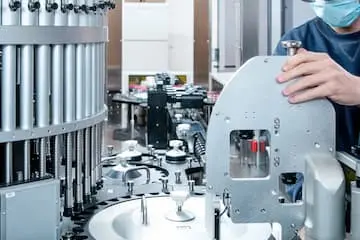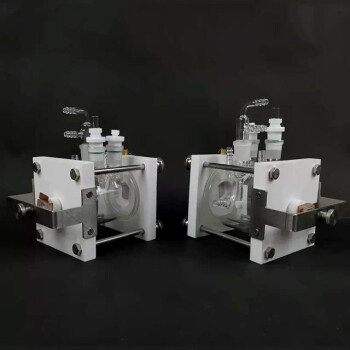An electrolytic cell is an electrochemical device that uses electrical energy to facilitate a non-spontaneous redox reaction. It is commonly used for the electrolysis of certain compounds, such as water, to form gaseous oxygen and gaseous hydrogen. The three primary components of electrolytic cells are the cathode (negatively charged), the anode (positively charged), and the electrolyte. Electrolytic cells are also used for the extraction of aluminum from bauxite, in electroplating, and in electrowinning processes. Additionally, the industrial production of high-purity copper, high-purity zinc, and high-purity aluminum is almost always done through electrolytic cells.
Toggle Categories
Get Instant Support
Choose your preferred way to connect with our team
-
Get Free Quote Fill out form for detailed pricing
-
Send Email Detailed inquiry support
-
WhatsApp Quick mobile chat
Response Time
Within 8 hours on working days, 24 hours on holidays
electrolytic cell

Multifunctional Electrolytic Electrochemical Cell Water Bath Single Layer Double Layer
Item Number: ELCM
$159.00

H-Type Double-Layer Optical Electrolytic Electrochemical Cell with Water Bath
Item Number: ELCHD
$269.00

PTFE Electrolytic Cell Electrochemical Cell Corrosion-Resistant Sealed and Non-Sealed
Item Number: ELCP
$29.90
We have the best Electrolytic Cell solutions to meet your needs. Our extensive portfolio of electrolytic cells includes standard solutions for common applications, as well as bespoke designs for unique requirements.
Applications of Electrolytic Cell
- Decomposition of chemical compounds, such as water into hydrogen and oxygen, and bauxite into aluminum and other chemicals.
- Electroplating of copper, silver, nickel, or chromium.
- Electrorefining and electrowinning of non-ferrous metals like high-purity aluminum, copper, zinc, and lead.
- Production of caustic soda and other chemicals.
- Refining copper and other metals.
- Determination of electrode potential of different metals.
- Determination of electrochemical series via a Standard Hydrogen Electrode (SHE) system.
Advantages of Electrolytic Cell
- Electrolytic cells are used for the production of hydrogen and oxygen gas from water.
- They are used to extract aluminum from bauxite.
- Electrolytic cells are used in electroplating to create a thin protective layer of a specific metal on the surface of another metal.
- The electrorefining of many non-ferrous metals is done with the help of electrolytic cells.
- Electrolytic cells are used in electrowinning processes.
- Industrial production of high-purity copper, high-purity zinc, and high-purity aluminium is almost always done through electrolytic cells.
Electrolytic cell is an electrochemical cell that drives a non-spontaneous redox reaction with electrical energy. It is widely used to decompose chemical compounds and electroplate various metals. Our extensive product line provides you with a standard solution that fits your needs, and for more unique applications, our custom design service will help us cater to your specific requirements.
FAQ
What Are Electrolytic Cells Used For?
What Is The Difference Between Galvanic Cell And Electrolytic Cell?
What Is An Electrolytic Cell And How Does It Work?
What Are The Two Points Of Difference Between Electrochemical And Electrolytic Cells?
What Is The Example Of Electrolytic Cell?
Are Electrolytic Cells Spontaneous?
REQUEST A QUOTE
Our professional team will reply to you within one business day. Please feel free to contact us!
Related Articles

The Vessel of Truth: Why the Container Matters More Than the Chemistry
The success of an electrolytic experiment often hangs on the material of the cell body. Discover the trade-offs between Borosilicate, Quartz, and PTFE.

The Symphony of Coefficients: Why Your Electrolytic Cell Cannot Be a Monolith
Glass withstands heat; PTFE does not. Understanding the thermal conflict in five-port electrolytic cells is key to preventing equipment failure.

The Anchor of Truth: Why Physical Stability Defines Electrochemical Success
In electrochemistry, data integrity begins with physical stability. Discover why securing your electrolytic cell is the most critical step in your experiment.

The Transparency Paradox: Mastering the Fragile Art of Electrolytic Cells
Glass electrolytic cells are precision instruments, not simple containers. Learn the systematic approach to handling glass to ensure safety and data integrity.

The Art of the Shutdown: Engineering Reliability in Electrochemical Cells
Post-experiment procedures are not chores; they are the foundation of future accuracy. Learn the disciplined protocol for maintaining double-layer electrolytic cells.

The Invisible Variable: Why Electrolytic Cell Hygiene Defines Data Integrity
Master the art of electrolytic cell maintenance. Discover how a strict cleaning protocol prevents cross-contamination and secures reproducible electrochemical results.

The Silent Deformation: Why Good Intentions Break Precision Glassware
Discover the critical thermal limits of double-layer electrolytic cells. Learn why heating the assembly destroys precision and how to ensure experimental integrity.

The Thermodynamics of Patience: Mastering the Five-Port Cell
Precision in electrochemistry requires balancing thermal control with material limits. Learn to manage heat without compromising your PTFE seals or data integrity.

The Geometry of Control: Inside the Super-Sealed Electrolytic Cell
Why the 10-100ml volume and 5-aperture design became the gold standard for electrochemical precision, and how to choose the right setup.

The Geometry of Truth: Why the Electrolytic Cell Dictates Experimental Success
Precision in electrochemistry relies on the vessel as much as the reaction. Explore the 50-500ml standard, the three-electrode system, and the art of cell design.

The Invisible Architecture of Accuracy: Optimizing the Five-Port Electrolytic Cell
Master the critical pre-use protocols for five-port water bath electrolytic cells. Learn how meticulous preparation ensures reproducible electrochemical data.

The Invisible Variable: Why Electrolytic Cell Hygiene Defines Your Data
Proper electrolytic cell maintenance prevents dangerous reactions and ensures data integrity. Learn the critical "no metal brush" rule and safety protocols.

The Geometry of Control: Why 1 cm² Defines Electrochemical Success
Discover why the standard 1 cm² reaction area and precision O-ring sealing create the necessary baseline for repeatable, accurate electrochemical data.

The Architecture of Accuracy: Inside the Five-Port Electrolytic Cell
Precision in electrochemistry relies on controlling the environment. Explore the engineering behind the five-port water bath cell and how it eliminates variables.

The Fragile Vessel of Truth: A Maintenance Manifesto for Electrolytic Cells
Data integrity relies on equipment health. Discover the psychological and technical art of maintaining five-port electrolytic cells for reproducible science.

The Choreography of Electrons: Why Precision Demands a Trinity
Precision in coating evaluation isn't about power; it's about separation. Discover why the three-electrode system is the only way to silence electrochemical noise.

The Fragility of Precision: Mastering the Integrity of Five-Port Electrolytic Cells
Prevent leaks in electrolytic cells through systematic inspection and proper assembly. A guide to mastering experimental seal integrity and reliability.

The Silent Variable: Why Material Purity Defines Electrochemical Truth
Discover why the all-quartz electrolytic cell is the hidden standard for high-precision electrochemistry, photoelectrochemistry, and contamination control.

The Art of Resistance: Why Your Electrolytic Cell Needs Breathing Room
Short circuits in electrolytic cells aren't just accidents; they are geometry failures. Learn how to control the electrical path and protect your lab equipment.

The Invisible Variable: Why Post-Experiment Rituals Define Scientific Truth
Post-experiment cleanup isn't a chore—it's a control variable. Learn the systematic care of all-quartz electrolytic cells to ensure reproducibility.








